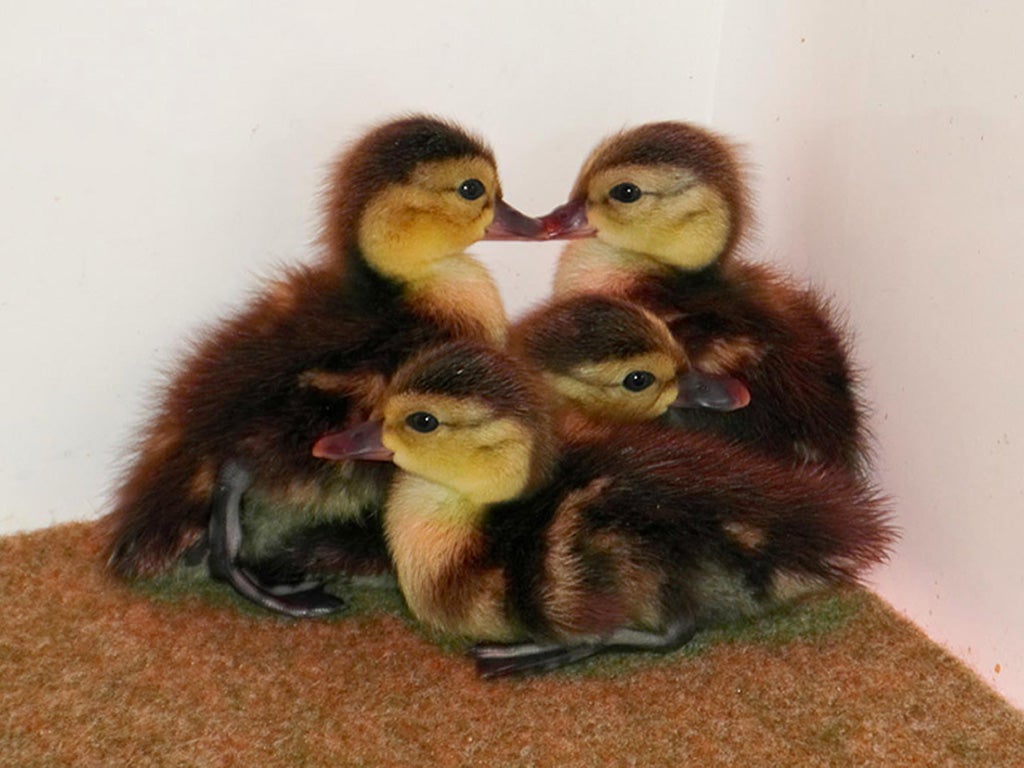
Your support helps us to tell the story
From reproductive rights to climate change to Big Tech, The Independent is on the ground when the story is developing. Whether it's investigating the financials of Elon Musk's pro-Trump PAC or producing our latest documentary, 'The A Word', which shines a light on the American women fighting for reproductive rights, we know how important it is to parse out the facts from the messaging.
At such a critical moment in US history, we need reporters on the ground. Your donation allows us to keep sending journalists to speak to both sides of the story.
The Independent is trusted by Americans across the entire political spectrum. And unlike many other quality news outlets, we choose not to lock Americans out of our reporting and analysis with paywalls. We believe quality journalism should be available to everyone, paid for by those who can afford it.
Your support makes all the difference.Six years ago their kind was feared extinct, but 18 newborn ducklings from the world's most endangered duck species – the Madagascar pochard – met the public for the first time yesterday.
They were hatched at a specially built breeding centre in Antsohihy, on the island off East Africa, bringing the total population to just 60.
The ducks were thought to have died out in the 1990s, but were rediscovered in 2006, when conservationists on an expedition spotted 22 birds at Lake Matsaborimena in northern Madagascar.
The breeding programme is being led by Britain's Wildfowl and Wetlands Trust and Durrell Wildlife Conservation Trust. PA
Join our commenting forum
Join thought-provoking conversations, follow other Independent readers and see their replies
Comments